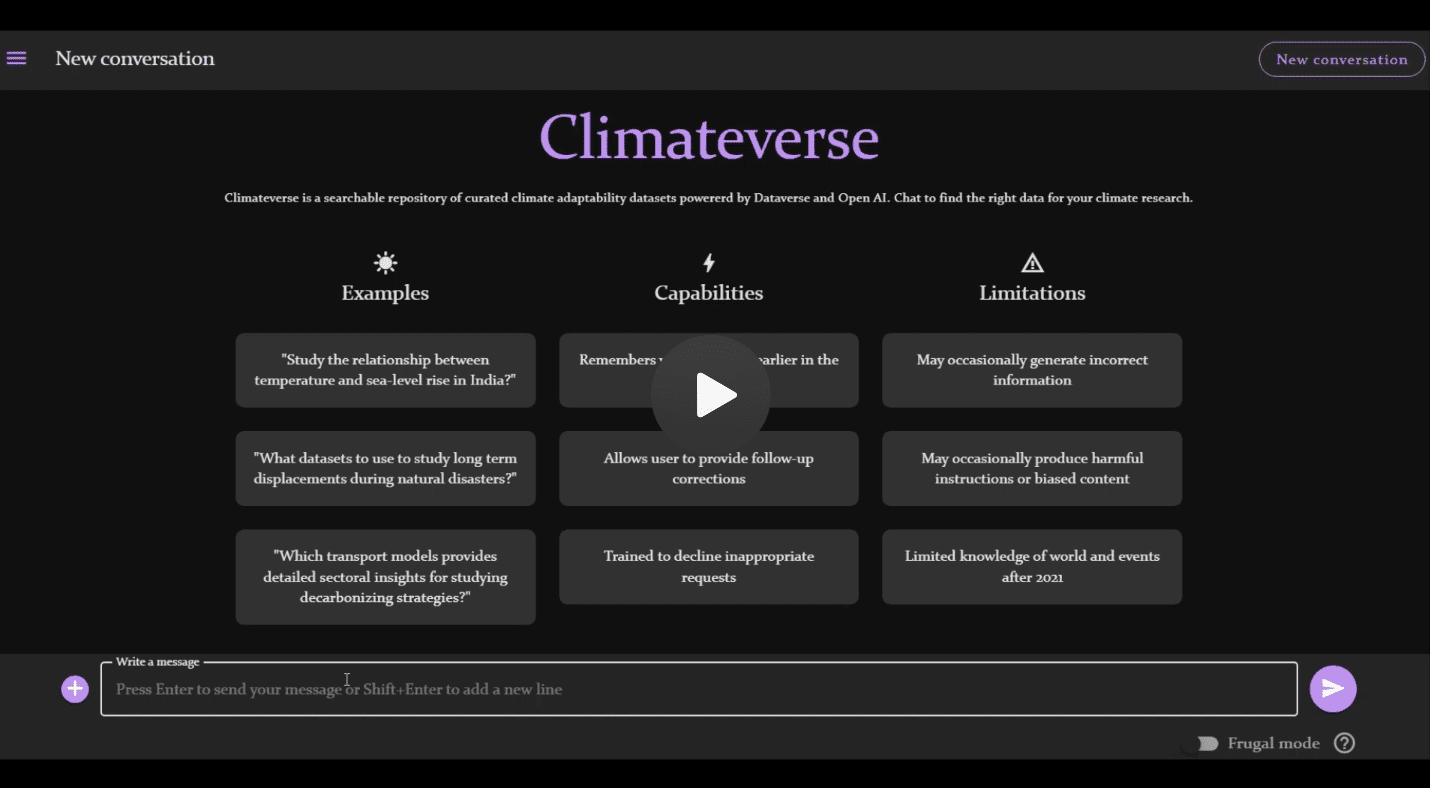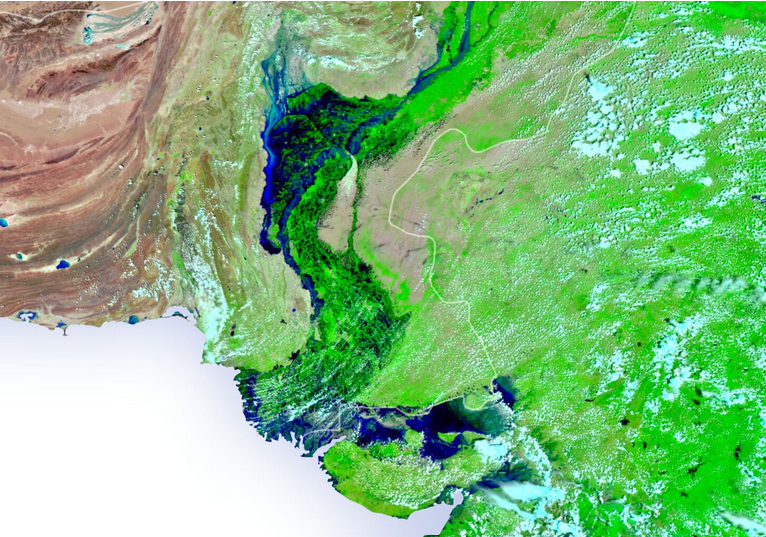Climateverse: Driving data driven responses to climate change in South Asia
Climateverse: Driving data driven responses to climate change in South Asia
More than 700 million people in South Asia have been affected by at least one climate-related disaster in the last decade. While there exist regional and global models – of sea level rises, temperature fluctuations, and rainfall changes, we only have a vague understanding of how these changes impact communities, habitats, local economies, and livelihoods at smaller regional scales. Policy makers have limited contextual empirical data to help formulate plans to address climate change adaptation. There are also important methodological challenges in incorporating such data in decision making – first, the data that are often most useful for decision making are often non-standardized, not readily available, and often under the purview of private companies. Second, the use of novel data streams like human mobility data from cell phones or satellite imagery, or clinical data from electronic health records or population health databases, is very promising, but raises important privacy and methodological issues. Finally, the local capacity to apply these data readily into decision-making does not exist.
This project is aimed at addressing these multiple challenges to build a comprehensive regional data-ecosystem to drive evidence-based policy making in the region.
In close collaboration with local partners in the region, we will conduct a comprehensive comprehensive review of climate-related data challenges, opportunities and gaps through interviews with key stakeholders across government, academia, and the private sector that either have access to the data, the capacity to gather and conduct research on these data or will productively use the data. We will also assess robustness and reliability of available datasets required for research and policy making on climate, by ascertaining their provenance, accessibility, reliability, transportability, security, and interoperability, and the presence of ethical, regulatory and technical barriers to accessing them.
A key focus of this project is the development of a searchable, open-source repository, Climateverse, where processed, curated datastreams are made available to a wide community of policymakers, academics, and other stakeholders. Climateverse will combine Large Language Models (LLM) and Generative AI to allow users to identify as well as assess quality and utility of datasets needed to answer their research or policy questions.
We will work with policy makers and researchers to develop new prototypes and demonstrate use-cases on the application of Climsteverse in disaster response and adaptation planning.This will include informational sessions for technology companies to encourage open access to anonymized data. In partnership with local academic and governmental organizations, we will also conduct training programs focused on data management, application of differential privacy, and assessing and applying such data in policymaking efforts.
This research is made possible by generous funding from the Harvard University Climate Change Solutions Fund. (Read the Harvard Gazette story).
The open-access climate and population health data-monitoring ecosystem will “democratize” essential data and be foundational to understanding the impact of the changing climate on the world’s most populous region.
FACULTY LEADS
Satchit Balsari, Associate Professor in Emergency Medicine, Harvard Medical School and Beth Israel Deaconess Medical Center
Caroline Buckee, Professor of Epidemiology, Harvard T.H. Chan School of Public Health
Tarun Khanna, Jorge Paulo Lemann Professor, Mittal Institute Faculty Director
RESOURCES
Climateverse webpage
The climateverse platform unlocks the power of generative AI & public data for improved climate action. Find a demo tool and more on the webpage.


